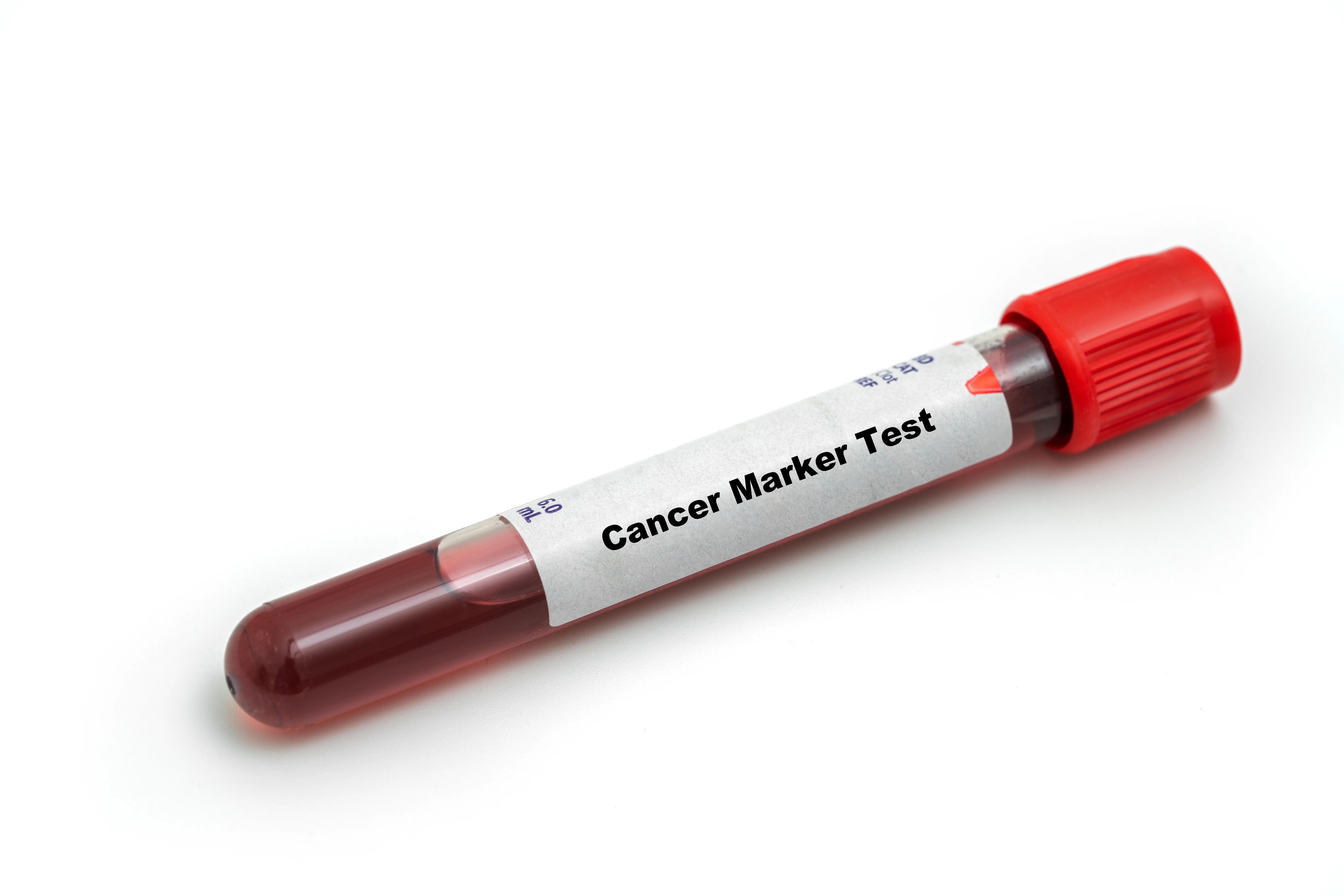The Role of Tumour Markers in Routine Health Checks
Tumour markers are often used in cancer diagnosis, but do they belong in routine health checks? Understand their role, limitations, and whether including them in regular screenings is beneficial for you.

Written by Dr. Rohinipriyanka Pondugula
Reviewed by Dr. Md Yusuf Shareef MBBS
Last updated on 10th Sep, 2025

When we think of routine health check-ups, we often focus on standard parameters, such as blood sugar, cholesterol, liver and kidney function, and maybe a thyroid panel. But what about tumour markers? These tests, which measure substances in the blood linked to cancer, are gaining more attention. Should they be a regular part of your annual screening? Or are they only relevant when symptoms appear or there's a confirmed diagnosis?
Let's explore what tumour markers are, how they work, and whether they should be considered in routine health assessments.
What Are Tumour Markers?
Tumour markers are substances, often proteins, produced by cancer cells or sometimes by the body in response to cancer. They can be found in the blood, urine, or tissues. Elevated levels may indicate the presence of cancer, but that's not always the case. Sometimes, benign conditions or lifestyle factors can also cause raised levels.
Some of the more commonly used tumour markers include:
- PSA (Prostate-Specific Antigen): for prostate cancer
- CA-125: linked to ovarian cancer
- CEA (Carcinoembryonic Antigen): associated with colorectal and other cancers
- AFP (Alpha-Fetoprotein): relevant in liver and germ cell tumours
- CA 19-9: related to pancreatic cancer
- hCG (Human Chorionic Gonadotropin): used in testicular cancers
What Do Tumour Markers Tell You?
It's important to understand that tumour markers are not diagnostic tools on their own. An elevated level doesn't automatically mean you have cancer, just as a normal level doesn't rule it out completely.
Instead, they serve several purposes:
1. Monitoring cancer treatment helps evaluate how well the treatment is working.
2. Checking for recurrence: Some markers rise before symptoms return.
3. Assessing risk in high-risk individuals: People with a strong family history may benefit from selective tumour marker testing.
4. Supporting diagnosis: Alongside imaging and biopsies, markers can offer supportive evidence.
Should You Include Them in Routine Screenings?
There's no one-size-fits-all answer. The inclusion of tumour markers in routine check-ups depends on several factors:
1. Your Personal and Family History
If you have a strong family history of certain cancers, your doctor might recommend tumour marker tests even if you're asymptomatic. For example:
1. A woman with a family history of ovarian cancer may be advised to check CA-125.
2. Men with a family history of prostate cancer might undergo PSA testing earlier than usual.
2. Age and Gender
Certain tumour markers are more useful after a specific age or in certain genders:
1. PSA testing is often discussed for men over 50.
2. CA-125 may be considered in women over 40 with genetic risks.
3. Lifestyle Risk Factors
Smoking, alcohol consumption, obesity, and poor diet can increase cancer risk. Individuals with such habits may consider annual screenings, potentially including tumour markers, under physician guidance.
4. Previous Health Issues
Those who've previously had cancer or pre-cancerous conditions may be monitored using tumour markers as part of long-term follow-up.
The Pros of Adding Tumour Markers
1. Early Warning System: In high-risk individuals, tumour markers might catch cancer before symptoms arise.
2. Non-Invasive Monitoring: A simple blood test can help track changes over time.
3. Guides Further Testing: Abnormal results can prompt imaging or biopsy for clarification.
4. Peace of Mind: Especially for those with a family history of cancer, tumour marker testing can offer reassurance or prompt timely action.
The Limitations and Caveats
Despite their benefits, tumour markers aren't foolproof:
1. False Positives: Levels may rise due to non-cancerous conditions (e.g., CA-125 can rise in endometriosis).
2. False Negatives: Normal levels can occur even when cancer is present.
3. Overdiagnosis: Can lead to unnecessary tests, anxiety, and even procedures.
4. Lack of specificity: Many tumour markers are not specific to one type of cancer.
Because of these limitations, medical guidelines do not recommend using tumour markers for general population screening. They are best used selectively in high-risk individuals or conjunction with other diagnostic tools.
Expert Opinion: What Doctors Recommend
Most healthcare professionals do not recommend tumour marker tests as part of routine health checks for individuals at average risk of cancer. These tests are generally reserved for specific situations where there is a higher likelihood of disease. For example, if someone has a strong family history of cancer, known genetic mutations such as BRCA1 or BRCA2, or has previously been diagnosed with pre-cancerous conditions, doctors may advise periodic monitoring using tumour markers.
In such cases, personalised screening strategies including genetic counselling, family history evaluation, and focused diagnostic testing tend to offer more reliable guidance than generalised tumour marker testing.
When Tumour Marker Testing Makes Sense
Here are some cases where tumour markers could be added to your health check-ups:
How Often Should You Get Tumour Marker Tests?
If tumour markers are recommended for you, the frequency depends on your risk level and clinical findings. General guidance may look like:
1. High-risk individuals: Every 6–12 months
2. During treatment or remission: As per the oncologist's advice (monthly to quarterly)
3. With new symptoms or findings: As needed
For the average individual, routine annual tumour marker testing is not necessary unless a physician advises explicitly that it is.
Tumour Marker Tests Available on Apollo 24|7
If you're considering adding tumour markers to your check-up, Apollo 24|7 offers reliable lab services with quick turnarounds. Some commonly available tests include:
1. PSA Test: Prostate Cancer Screening
2. CA-125 Test: Ovarian Cancer Marker
3. CEA Test: Colorectal and Lung Cancer Marker
4. AFP Test: Liver and Germ Cell Tumour Marker
5. CA 19-9 Test: Pancreatic Cancer Marker
You can book tests online, get samples collected at home, and receive expert consultations if results are abnormal.
Conclusion
Adding tumour markers to your routine check-up isn't necessary for everyone. However, for those with increased cancer risk due to genetics, family history, or lifestyle, these tests can provide valuable insights when used judiciously.
The key is to avoid unnecessary testing and instead follow a personalised screening plan crafted by your doctor. If you're unsure whether these tests are proper for you, consult a healthcare professional or genetic counsellor.
Stay Informed, Stay Ahead
Your health isn't just about today; it's about preparing for the future. Tumour markers aren't magic bullets, but when used the right way, they can help detect trouble early and guide smarter decisions.
Ready to explore personalised health screening? Book a consultation or test with Apollo 24|7 and take a proactive step towards cancer prevention.

